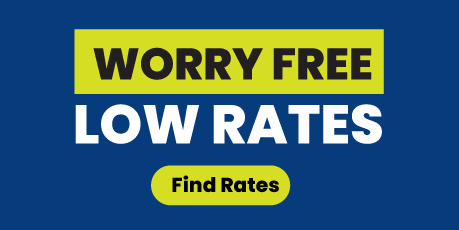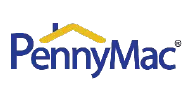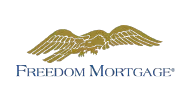What is Ginnie Mae (GNMA)? | How does Ginnie Mae help homebuyers and homeowners?

Ginnie Mae role in the mortgage market
If you're not in the real estate or mortgage lending industry, then the home-buying or refinancing process can feel overwhelming. If you are considering a mortgage loan program that is insured by the by the federal government, Ginnie Mae is the entity that unifies the underwriting guidelines for government insured mortgage loan programs.
Knowing more about the Government National Mortgage Association, GNMA, responsibilities and safeguards in the the housing market and mortgage market, can be helpful for anyone looking to purchase a house or refinance their mortgage using any government insured mortgage loan program.
While Ginnie Mae does not originate loans, they do provide an endless supply of money to lend for both banks and mortgage lenders.
This article will discuss the important details of Ginnie Mae, which is the secondary market for mortgages originated by all government insured loan providers to buy and sell mortgage loans as asset backed securities.
We will explain how it works as well as its role in mortgage markets and compare it to Freddie Mac and Fannie Mae, who fund conventional loans.
What Is Ginnie Mae, the Government National Mortgage Association?
The Government National Mortgage Association (GNMA), Ginnie Mae, is a wholly owned U.S Government corporation that provides the assurance to investors who purchase Bonds from Ginnie Mae of timely payments.
Through Ginnie Mae's involvement with other Federal organizations and enterprises, they are making inexpensive housing a reality for thousands of households by ensuring that mortgages remain accessible and manageable.
What Does Ginnie Mae do?
GNMA was established after it separated from Fannie Mae, and is currently supervised by the U.S. Department of Housing and Urban Development (HUD). Its primary objective is to supply liquidity for home loans that are guaranteed directly by the federal government in the real estate domain.
Ginnie Mae acts as a clearinghouse for mortgage lenders, banks, and credit unions that provide Government Insured Mortgage Loans like FHA Loans, VA Loans, and USDA Loans, to sell the loans they originate to capital.
Ginnie Mae buys loans from lenders and banks
To raise capital to issue more mortgage loans, many banks and lenders will elect to sell their originated loans to increase their cash holdings. When the bank or lender sells their mortgage loans, they will now have access to the funds to originate new mortgages.
If the loans being sold are underwritten under the guidelines of the Federal Housing Administration (FHA), then banks can sell their loans to Ginnie Mae.
Ginne Mae Issues Bonds from the Government Insured Mortgages.
Ginnie Mae raises capital by issuing and selling bonds to investors when Ginne Mae purchases mortgage loans from banks and mortgage lenders.
These Ginnie Mae bonds are guaranteed by the U.S. Government. The GNMA bonds carry the full faith and credit of the United States Government. This guarantees to the investors that they will receive timely payments regardless of any borrower defaults.
How does Ginnie Mae help homeowners and buyers?
The Government National Mortgage Association provides a constant supply of capital to mortgage lenders that originate government insured mortgage loans. GNMA operates a mortgage marketplace where mortgage lenders sell their loans, so the banks can have access to more capital to issue more mortgage loans.
If you have a less-than-perfect credit history, Ginnie Mae is there to help. Through our government-backed mortgage guarantee program, we strive to provide homeownership opportunities for all and may be able to offer you an opportunity despite your past financial shortcomings. Thus allowing you the chance of achieving the dream of owning a home!
Raising Capital for higher risk borrowers
Investors are very cautious when assessing risk in mortgage markets. To promote affordable housing loan programs for borrowers who do not qualify to purchase a home under Fannie Mae or Freddie Mac's conventional loan programs, the U.S. Government offers Government Insured Mortgage Loans Programs.
Under the directives of the U.S. Department of Housing and Urban Development and the Federal Housing Administration, the following low-down payment, low interest rate and relaxed underwriting guideline loan programs were created:
Government Insured Mortgage Loan Programs
-
Federal Housing Administration (FHA Loans)
-
Veterans Administration (VA Loans)
-
U.S. Department of Agriculture (USDA Loans)
These affordable housing loan programs are funded through the efforts of Ginne Mae, The Government National Mortgage Association.
Without Ginne Mae's selling of bonds to raise capital these mortgage loan programs would not exist.
The infusion of liquidity provided to nonbank and other mortgage lenders helps to keep the cost of government-backed loans more affordable than if banks or other mortgage originators were required to hold onto those loans for extended periods of time.
How does Ginnie Mae create bonds?
To ensure that the housing market consistently has access to capital, Ginnie Mae provides liquidity through bond packaging. This involves purchasing mortgages and then bundling them together in what is commonly known as GNMAs. Here's a brief look at how it works:
Combining loans with similar characteristics, a mortgage bond or MBS is created. For example, one of these might be composed of 2,000 VA mortgages with a median FICO® credit score of 620 and down payments/equity amounts that are no lower than 3.5%. Ginnie Mae then packages this bond to make it available for investors in the financial market.
Are Ginnie Mae Bonds a safe investment?
Investing in bonds or loans backed by mortgage payments is typically seen as sound, given that most people prioritize their homeownership before other expenses. Still, these types of bonds come with the additional assurance of Ginnie Mae guarantees to make up for any losses should the borrower default on the principal and interest payments on their loan.
Any investor must be mindful of the returns they will receive on their investment. GNMAs, similar to other bonds, are influenced by fluctuating interest rates. When interest rates rise, it is usually due to market conditions that necessitate a greater yield in order to entice bond investors.
What are the Mortgage Loans Programs secured by Ginnie Mae
Ginnie Mae plays an integral role in the mortgage market: by guaranteeing a selection of home loans that are backed directly by the United States government. Let's explore them further!
FHA Loans
Ginnie Mae is the main provider of FHA loans. FHA Loans offer borrowers who have lower credit scores and or lower down payment funds affordable mortgage financing terms. Even with a 10% down payment, you can get an FHA loan if your median FICO® credit score is 500 or higher. Applicants with a credit score of 580 or better can qualify with as little as 3.5% down payment. EquiFund Mortgage prefers applicants with at least 580 points in their score and 3.5% down payment for them to be considered eligible for the loan program.
If a borrower's credit score is 620 or higher they may have the ability to exceed the normal debt-to-income ratio (DTI) Additionally, those with high scores can benefit from a lower rate of interest when all other factors remain the same.
When looking into a FHA loan, it is important to understand that there will be an initial mortgage insurance premium charge of 1.75% of the new loan amount paid upfront as well as monthly mortgage insurance premiums included in the mortgage payments.
VA Loans
Guaranteed by the U.S. government, GNMA secures VA loans offered through the Department of Veterans Affairs Home Loan Program with an intention to benefit eligible active-duty servicemembers, reservists, National Guard personnel, veterans and surviving spouses who receive dependency indemnity compensation (DIC).
This loan option offers an advantage in that there is no down payment required. The additional benefits include competitive rates, the ability to qualify with a higher Debt-to-Income ratio than most other loans, and you can access up to 100% of your equity by converting it into cash if you have at least 580 FICO® credit score.
Even though the VA does not stipulate a median score for basic eligibility to obtain a loan, most lenders have their own standards; for instance, EquiFund Mortgage requires clients to present at least 580 as their minimum credit score.
VA mortgage loans offer very low interest rates and relaxed underwriting guidelines. If you are a Veteran with disability greater than or equal to 10% or more, there is no VA funding fee. Depending on the applicants status, the VA Funding Fee varies.
USDA Rural Housing Loans
Ginnie Mae provides additional support to the U.S Department of Agriculture (USDA Mortgage Loans)’s Rural Housing Service (RHS) program, designed to assist people living in rural areas with an affordable mortgage option.
One of the most appealing benefits is that USDA loans require no down payment and guarantee fees are lower than FHA loan mortgage insurance payments.
To be eligible for this loan, you must reside in a rural region approved by the program. Additionally, everyone living in your household cannot earn more than 115% of the median income level of your area.
Mortgages For Native Americans
HUD's Native American Programs office offers a great opportunity for potential homeownership. Section 184 Loan Program provides low-interest loans with minimum down payments of 2.25% if the loan is over $50,000 and 1.25% if under that amount. Interest rates are determined by current market rates, not the applicants credit score.
With regards to credit score, you may be surprised at the flexibility offered by manually underwriting these loans. Unlike traditional mortgages, a 1% guarantee fee is required instead of mortgage insurance - this can either be paid right away or built into the loan itself.
How Does Ginnie Mae Differ From Government-Sponsored Enterprises?
GNMA bonds are mortgage backed securities offered directly by the Federal Government and are composed of Government Insured Mortgage Loans. Conventional mortgage loans are securitized by two large Government Sponsored Enterprises (GSE), known as Fannie Mae and Freddie Mac.
Although these GSEs act independently and not as a direct arm of the U.S. government, their underlying loans possess an implied guarantee because they entered into conservatorship with the feds after 2008's housing debacle.
Fannie Mae, Freddie Mac and Ginnie Mae
Ginnie Mae, Fannie Mae, and Freddie Mac all share numerous similarities - they buy mortgages to construct an MBS (Mortgage-Backed Security) that is sold in the bond market.
This not only creates liquidity within the mortgage industry but also helps maintain housing costs at a reasonable level.
Furthermore, both Fannie Mae and Freddie Mac began with government charters thus both financial institutions having a unified purpose from their inception.
A main difference between Fannie Mae and Freddie Mac versus Ginnie Mae is the kinds of mortgages they finance. While Fannie Mae and Freddie Mac support conventional loans that require a minimum credit score of 620, these tend to have lower interest rates since borrowers are typically more qualified.
Government-backed loans for borrowers, on the other hand, may carry higher interest rates due to their lower credit threshold requirements.
As a borrower, you can enjoy the benefits of conventional mortgages with as little as 3% down payment. Plus, no matter how low your initial investment is on the loan, when you reach 20% equity in it, you may request to have mortgage insurance removed from your monthly obligations entirely - and that's even better news!
Despite multiple attempts to free Freddie Mac and Fannie Mae from the conservatorship of the Federal Housing Finance Agency (FHFA), nothing has come to fruition yet.
Summary for Ginnie Mae
Ginnie Mae's mission of providing affordable housing for all is accomplished by purchasing government-backed mortgages, aggregating loans with similar characteristics into Mortgage-Backed Securities (MBSs), and selling them on the bond market to investors.
As an assurance that their investments in government loans are secure, Ginnie Mae guarantees these bonds will remain backed should any loan defaults occur.
Ginnie Mae is a government-backed entity that assists in making home ownership possible and offers guarantees on FHA loans, VA loans, USDA loans, and the Section 184 loan program. Additionally, while they do not have governmental backing themselves, Fannie Mae and Freddie Mac serve as secondary lenders by purchasing conventional mortgages.







